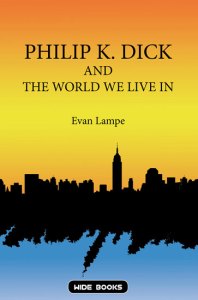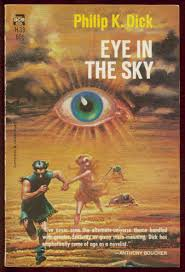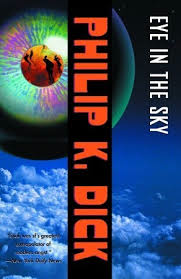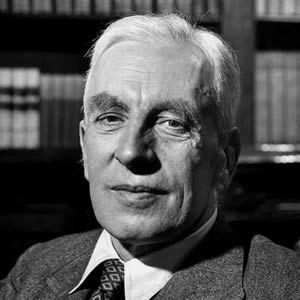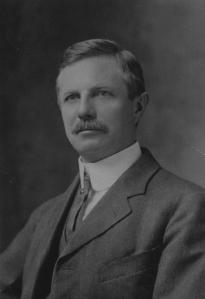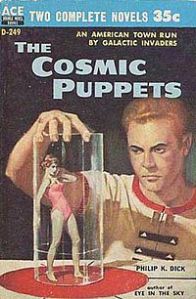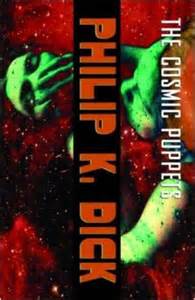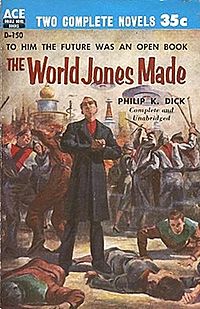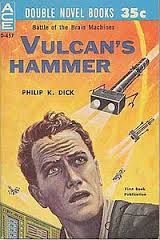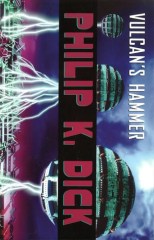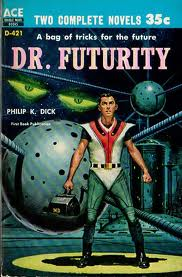Introduction
The Crack in Space was first published by Philip K. Dick in 1966 with the help of Ace Books. It is about an overpopulated Earth facing a jobs crisis. Millions are left without work or hope of work and are placed in cryogenic freeze until the economy improves. A possible solution to this comes in the form of a passage to a second Earth, but when they learn that the planet is populated by descendants of homo erectus, the politicians’ hope to solve the “bib problem” fade. The novel explores questions of economic justice, political effectiveness, celebrity and scandal, transhumanism, and life-extending technology. It one of the novels by Dick that seems to have a strong cyberpunk theme. It is one of Dick’s most underrated novels and one of his most important economic arguments. It is plagued by his classic moralism about sexuality and family, but even this is largely directed into his more important argument about class conflict, technology, and economic justice.
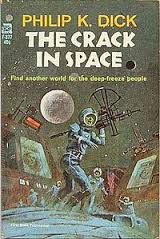
Character List
Like many of Dick’s mid-1960s novels, The Crack in Space is chock full of characters, many of whom are only temporarily present in the story but are crucial to the plot. The most important figures in The Crack in Space are:
The Candidate and His Circle
Jim Briskin: A candidate for the President of the United States. He if wins he will be the first “Col” President. He campaigns on moral issues and a permanent solution to the “bib” crisis through terraforming another planet.
Sal Heim: Briskin’s main advisor. He is more cynical than some of his other advisors and wants Briskin to embrace the politics of reality.
Patricia Heim: Sal Heim’s wife. She is often involved in political discussions, but largely follows her husband’s guidance.
Phil Danville: Briskin’s speech writer, who apparently embraces Briskin’s idealism. Sal Heim thinks he is a fool.
Tito Cravelli: A private investigator who works his way into Briskin’s circle by directing knowledge his way. He will be the Attorney General under Briskin’s administration.
Bruno Mini: A scientists devoted to terraforming efforts. Briskin uses his research as the basis of his campaign promise to use other planets to solve the “bib” crisis.
Pethel Jiffi-Scuttler Repair
Darius Pethel: The owner of a jiffi-scuttler repair shop that becomes the center of global attention after one of their repair jobs reveals a portal to a parallel universe. He hopes to take advantage of this.
Rick Erickson: A Juffi-scuttler repairman and one of the discoverers of the portal.
Donald Headly: A Jiffi-scuttler repairman. He is married but falls in love with the prostitute Sparky Rivers.
The Golden Door Satellite
George Walt: A posthuman (or possibly transhuman) made of two separate consciousness in one conjoined body. They own the satellite brothel The Golden Door. He later poses as a Wind God in an attempt to control the Pekes.
Sparky Rivers: A prostitute in the Golden Door.
Thisby Olt: An aging prostitute in the Golden Door, who looks young due to technology. She is high-ranking and experienced.
The Sands
Lurton Sands: A organ translation physician, world famous for his skill at prolonging life. He is in the middle of a scandalous divorce. He is the first to learn of the parallel Earth, which is uses to hide his mistress. He is also stealing organs from bibs to transplant into his aging patients.
Myra Sands: Lurton’s wife and the prime instigator of his legal troubles. She hires Tito Cravelli to find evidence of Lurton’s misdeeds.
Cally Vale: Lurton Sands’ mistress.
Pekes
The Peke Prophet: A possibly mutated Peking Man from the parallel Earth. He has supernatural powers and above-average intelligence for members of his species.
Bill Smith: The first Peke to talk to homo sapiens through a translator.
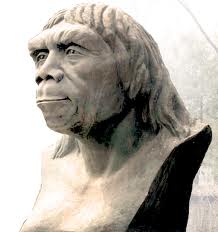
Terran Development
Leon Turpin: Head of Terran Development, a quasi-government agency that among other things organizes extraterrestrial settlement.
Frank Woodbine: An explorer of extraterrestrial planets who is commissioned by Terran Development to help with the exploration of the parallel Earth.
CLEAN
Herb Lackmore: An aging bureaucrat. His work in processing bibs contributes to his racism. He joins the racist organization CLEAN and is drafted into an effort to assassinate Jim Briskin.
Verne Engel: The leader of the racist organization CLEAN, which is currently devoted to preventing the election of Jim Briskin to the office of President of the United States.
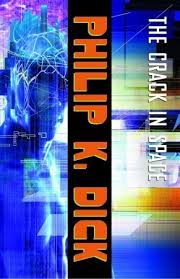
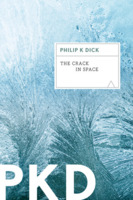
Thematic Summary
The “Bib” Problem and the Violence of Economic Inequality: The central theme running through The Crack in Space is the violence done to the poor and the old when the economy is controlled by one sector of society. In this case, the economy is dominated by the jerries—elders kept alive by artificial means. While the economy is overcrowded, the reason there is no work for the poor has more to do with technological unemployment than with “over-population.” (More people means more services and goods needed, so it is not clear why overpopulation would be a problem in a healthy economy—the environment is another issue.) Ttechnology made the need for work less, and those with jobs aged (but never retired), so there was quickly no room for the poor and the minorities. The violence of this unequal access to economic opportunity is represented by the “bib” crisis. Many of these unneeded workers are put into suspension until work (someday perhaps) opens up. Making things worse—and it was Dick’s intention to clarity the point—Lurton Sands literally harvests these poor for organs that are used to keep the rich and relatively secure elders alive. This is one of the sharpest images of economic equality Dick came up with in his career. It is also one rooted on the real experiences of working people in much of modern history. The novel Frankenstein spoke directly to workers’ concerns in the eighteenth and nineteenth century over scientists grave robbing the dead for their bodies, especially those of the poor, the marginalized, and the criminal. (See Monsters of the Market for more on his history.)
Effectiveness of Politics: The Crack in Space asks important questions about democratic politics. Much of the plot surrounds a democratic election for President. What is striking about this is that the election comes after decades where the people most hurt by the economy have been unrepresented and actively marginalized by a white, aging, and employed minority. Even as whites became a minority, the political system served the few. Jim Briskin is both a new candidate and more of the same. He does seriously mean to address himself to the “bib” problem, and seems to be the first politician to run on this platform. However, he is also not trusted by the non-white voters who assume he is a sell-out, he takes advice from the cynical Sid Heim, and he seems often to doubt his own optimism. In short, Briskin is quite fake and everyone knows it. Even George Walt at the end learns that Briskin is not all that he seems. In many ways, Briskin is just lucky to be running for President at the time a reasonable solution to the “bib” problem emerges. Nothing he did or could do can change the fundamental problem in the economy. Making matters worse, strong racist organizations openly work making it more difficult for any progressive politics to take hold.
Frontier: As readers of this blog may know I am very interested in the role of the frontier in Dick’s fiction and find it to be one of the most underappreciated themes in his work. The frontier in The Crack in Space is three things at the same time: a promise of a new world, a failure and a disappointment, and a vision of an alternative development. For Briskin and the “bibs” the frontier was a hope for a new start, a blank slate that will allow them to escape the economic trap they are in. This feels much like how Dick described the frontier in many of his 1950s short stories. But this novel was written when Dick had apparently turned on the frontier (Martian Time-Slip and The Three Stigmata of Palmer Eldritch). In fact, the alternative Earth in The Crack in Space is a failure because it was not what the optimists dreamed it to be because it was not a blank slate. This is the root of the problem in the great Martian frontier novels of the 1960s (something I will talk about in the future). What is interesting is that the frontier still provides a solution by presenting an alternative history. In this case, the Pekes developed a more sustainable economy, with human-scaled technologies. This is in sharp contrast to the industrial, over-populated, and class-divided economy of Earth prime. So although it does not provide an easy solution to the bib problem, perhaps it is still a possible model for a different path. Due to the political realities and racism in the system, it is unlikely that anyone will see this. It is left for the reader to notice.
Celebrity and Scandal: A minor theme in the book, but not insignificant due to Dick’s overall interest in the role of media and celebrity is the Lurton Sands controversy. Sands is famous as a great physician, but his fame only grows as the subject of a celebrity scandal (like O.J. Simpson). He is facing a divorce from a wife who seeks to punish and humiliate him for keeping a mistress. This scandal becomes part of the social order, keeping the population distracted from important issues. Myra Sands makes her personal vendetta against her husband national news. In doing this, however, she does expose real crimes Lurton Sands committed—the harvesting of organs from bibs. This, however, is not the juicy point of interest. Most viewers of the scandal are more obsessed with the whereabouts of Sands’ mistress.
Transhumanism: There are strong transhumanist questions in The Crack in Space. This is not a theme that Dick dwelled as much on as he did posthumanism and mutation, but it is crucial to unlocking his vision of the future. The efforts to distance Dick from the later cyberpunks is easily frustrated by acknowledging Dick’s concerns about transhumanism. We have two main examples of transhumanism here. Most central to the novel’s concept is the ability of doctors to keep people alive forever. Thus even sex work becomes closed to younger workers. Thisbe Olt’s role in the novel is to show that with life-extending technologies even prostitution is something that can be closed out to younger workers. The other example of transhumanism is George Walt, who may be a mutant or may be a cyborg. This gives them special abilities and even the power to make themselves a god among the Pekes.
This brings us to the contrast with the cyberpunk genre. If the central theme of cyberpunk is the relationship between social inequality and technology than The Crack in Space is Dick most clearly foreshadowing that tradition. Technology is unequally distributed and unequally beneficial. What is liberating, life-saving, or profitable to one sector of society, becomes a tool of oppression to another.
Sexuality and Reproduction: Early in the novel there is a revealing moment when the candidate Jim Briskin reveals that although he is against the moral decline of society represented by the bibs and the satellite brothel The Golden Door, he had used an abortion consular in the past. Dick is at great pains in this novel to point out that sexuality has been redirected to banality. He often tended to belittle the social role of sexuality that is not directed toward reproduction (he did the same in Dr. Futurity). This is perhaps unfortunate and gives some context to his constant moralizing about monogamy. Yet, this moral message must be placed in the context of his anti-Malthusian arguments. Dick believed that a society that could not, or chose not to reproduce, had no future. Sterility is a theme in The Game-Players of Titan, Dr. Futurity, The Penultimate Truth, and Do Androids Dream of Electric Sheep? In all of these cases, the decline of society and the end of social progress is clearly modelled in the refusal or inability of people to have children. The Crack in Space provides the interesting situation of a sterile society in an over-populated economy. Here sterility is forced by the state. Having a child means losing access to the dole, which is in itself necessary for the survival of the “human kipple” that fills out the margins of the work.
The Golden Door shows that—like the celebrity scandals—sexuality is a distraction from the real challenges the world faces. Briskin’s opposition to the orbiting brothel is part of a realization that sexuality has become banal. The closing down of the satellite goes hand in hand with his efforts to find a suitable frontier for the bibs. Ending the population crisis means sexuality could return to its proper role: the cultivation of families and the raising of children. Dick, the radical in so many areas, was almost a reactionary on questions of sexuality and family. It also reveals his misunderstanding of the evolutionary role of sexuality as a general tool of social cohesion, not strictly about reproduction.
Race: With the United States having achieved the first black president decades before Dick predicted, we may find The Crack in Space’s racial arguments dated. The novel was written in the middle of the Civil Rights Movement, at a time when the movement was turning away from questions of political access to ones of social equality. Dick makes the case that political access is less significant than social equality. In this way he builds on organizations like the Student Non-Violent Coordinating Committee or the “black power” movements of the later sixties. The novel ends with the suggestion that electing a black president is the easy part. In any case, race and racism runs through the novel, building on the general theme of the unequal role of technology in a class society.
Chapter Summaries
Chapter One
A young Hispanic couple arrives at Herb Lackmore’s counter at a bureaucratic office. They have decided to become bibs (enter into cryogenic suspension) because they are unable to find work. The young woman confesses she is about to have a child. Lackmore, realizing that this accounts for their decision since the would have been pushed off the dole when she got pregnant, orders them to get an abortion. As they leave, Lackmore thinks about the dismal state of the labor market and reads the newspaper account of the Lurton D. Sands divorce scandal.
At a Jiffi-scuttler repair shop, Darius Pethel reads about the upcoming presidential election, which may result in the first black presidents. He grumbles about the candidate—Jim Briskin—and his promise to solve the bib problem. Pethel thinks this will just worse the job situation. He also thinks about Dr. Sands, a doctor specializing in organ replacement, and his wife Myra, an abortion consulter. He does not understand why Sands found a mistress when he could always visit the Golden Door Moments of Bliss satellite, an orbiting brothel. He tells his colleague, Hadley, hat morals have fallen too much and that the election of Briskin is inevitable. Lurton Sands enters, who probably wanted to know why his Jiffi-scuttler was not fixed, on top of all his other problems.
Jim Briskin is scolding his campaign manager Sal Heim about their strategy on the bib crisis. Briskin knows there is no likely way he can solve it, although it is a cornerstone of the campaign. Heim replies about Briskin’s mistakes such as his support of closing down the Golden Door and his insecurities about being the first black presidential candidate. He recommends Briskin speak more about his relationship with the great explorer Frank Woodbine and make fun of Sands’s current troubles. Briskin prefers the speech of a more conservative speechwriter, Phil Danville. Patricia, Sal’s wife, enters and recommends Jim take a more folksy and naive route so as not to destroy his future chances to win the election. Briskin delivers his speech into the camera, choosing to again insist on interplanetary exploration and settlement as the solution the bib problem. Sal turns off the camera before he can finish, but restarts it over the protests of the others.
Chapter Two
After the speech, Dorothy Gill, Briskin’s press secretary, suggests that he locate Bruno Mini to see if he is still working on his planet wetting (terraforming) projects. They walk out past racist protestors. Briskin shakes it off, knowing it comes not from his opponent Bill Schwarz, but from Verne Engel of the organization CLEAN. Sal thinks he is too gullible to not see the connection. Sal further confronts Briskin on abandoning white voters. He reminds Briskin that many whites will support his bid and he should not completely run away from confronting such racist stunts. They talk about the plans for his presidency. He will appoint Bruno Mini. Pat suggests he can also pardon Sands, if he is convicted of the murder of his mistress Cally Vale, who has gone missing.
Rick Erickson is working on Lurton Sands’ Jiffi-scuttlers. These transportation devices makes use of time-travel to allow high-speed mobility between two places. Travelers actually pass through Earth’s past. Pethel demands to know when it will be fixed. Sands is with him demanding answers. Erickson tried many things and begins to conclude that the Jiffi-scuttler is a lemon. Erickson continues his work after Sands insists on the repairs. He wonders why a rich man like Sands will insist on keeping an old, malfunctioning machine.
Chapter Three
Sal Heim goes to the Golden Door Moments of Bliss satellite to evade the consequences of what he thought was a disastrous speech by Briskin. He thinks about joining the SRCD Party and helpings Scwartz’ campaign. Despite a colored majority, more whites turn out on election day and Briskin insisted on alienating white voters. At the same time, Briskin did not really mobilize the colored base. The drivers questions Heim on Briskin’s commitment to black voters, reinforcing the point. He meets Thisbe Olt, an aging prostitute who still looks young due to body modifications and life-extending technologies. Thisbe Olt directs him to speak to the owner George Walt, despite this not being a political visit. George Walt is a conjoined mutant made up of two distinct personalities: one called George, the other called Walt. George Walt confronts Sal on rumors that Briskin will try to shut down the satellite. To keep friendly with the campaign “George” recommends Briskin tour the satellite and have some public photographs. This will help him seem normal and stop the rumors that would force George Walt to support Schwarz. Sal knows Briskin will refuse and lets George Walt know. George Walt calls for a prostitute, Sparky Rivers as part of the effort to convince Sal to change his mind.
Tito Cravelli, a private investigator, is talking to Myra Sands about some dirt he dug up on Lurton Sands concerning forty suspicious organ transplants. Myra orders him to follow up on some of those cases, especially a spleen transplant for an army private named Wozzeck. Tito invites Myra out to dinner at a place that serves hand-prepared food (most if produced by automated dispensers). Myra quickly gets back to business, helping Tito finds leads to these transplant cases where she is sure Lurton Sands located organs illegally. She also insists that he locate Dr. Sands’ mistress.
Chapter Four
The couple from the beginning of the novel is at Myra Sands’ abortion clinic. The young woman bemoans the criminalization of suicide. The consultation is distributed by a call from Tito Cravelli. He explains that there is no way that Cally Vale emigrated from Earth, so she must be somewhere. Myra concludes that she is a bib. Back to the consultation, the couple explains that they would like to have the baby, a completely bizarre desire in Myra’s perspective.
Darius Pethel disrupts Rick Erickson’s work on Lurton Sands’ Jiffi-scuttler. Erickson promotes a strange theory. Maybe Sands is keeping Cally Vale inside the Jiffi-scuttler. That would explain why he insists on the repairs and her disappearance. She may be stored in the same type of rent that Henry Ellis found years ago. [This is a reference to the short story “Prominent Author”.] Erickson goes into the rent that he found. It is not he ancient Israel Ellis found, but another variant of Earth. He thinks this may solve humanity’s population problem. A woman appears with a laser-beam pistol. She fires and kills him before he can get away.
Stuart Hadley pulls Erickson back from the rent and finds that he is dead. Pethel concludes that this is the payment for curiosity and that no organ transplant can save him due to the nature of his wound. They evidence they have suggests that Erickson travelled to the past. Pethel decides to notify Terran Development, thinking that this can be a route to emigration.
Sal Heim introduces George Walt’s offer to Jim Briskin. Briskin refuses. Briskin receives a phone call from Tito Cravelli, who wants to arrange a dinner. Briskin accepts. When Briskin tells Sal that he will insist on making the closure of the Golden Door satellite a part of his program, Sal resigns.
Chapter Five
Briskin is relieved that Sal has left. He would be free to follow his own ideas in the campaign. He goes to the meeting with Tito Cravelli. Cravelli tells him that Terran Development has found a solution to the bib problem in the form of an alternative Earth. In exchange for this information, Briskin offers Carvelli what he wants, the position of attorney general.
Myra Sands is going over Cravelli’s reports relishing her victory over her husband. Meanwhile, Jim Briskin is giving a speech where he comes out against George Walt’s brothel and announces the possibility of relocating bibs onto a secondary Earth. Myra Sands welcomes this as she was getting disgusted with abortion consulting.
Hebert Lackmore hears the news about the secondary Earth and fears for his job. He decides that he has no choice but to join CLEAN to do whatever he can to prevent Briskin’s election.
George Walt hears the news and they are horrified. Heim comes to visit but George Walt refuses to see him. Instead he calls Verne Engel of CLEAN, who they want to hire to stop Briskin. They invite Engle up to discuss the plans. George Walt is highly agitated that a successful Briskin presidency may mean the end of their business.
Lurton Sands is also horrified by the news because he knows he will lose the source of the organs that he uses to save so many lives. He decides he may need to kill Briskin for the greater good.
Chapter Six
Jim Briskin is overwhelmed with the political consequences of his speech and the potential enemies he has made. On the street, Sparky Rivers from the Golden Door approaches him and warns him that George Walt is working with Verne Engel and may try to kill him. Later, at a bar, Lurton Sands approaches Briskin and tries to kill him, but the gun was not loaded. Sands confesses that he has been using organs from the Special Public Welfare warehouses to supply to his patients. He justifies it as only potentially killing, since most of the bibs would never reawaken. After this incident Briskin begins to feel dread over his survival.
Tito Cravelli learns of the assassination plot by CLEAN using a new recruit named Lackmore (Or Luckmore). Knowing he cannot protect Briskin, and therefore his cabinet position, Cravelli decides to approach George Walt. He travels to George Walt’s satellite. When he finds George Walt he threatens to kill one of them, leaving the other with a dead body and dead mind attached to the other if he does not stop the contract against Briskin. Cravelli shoots one of them. Cravelli promises to kill him—and prevent a miserable life as one half of an entity—if he talks to Engel.
Chapter Seven
Herb Lackmore is preparing for the assassination of Jim Briskin. His weapon can kill him from miles away. Two men from CLEAN arrive, telling him to surrender his weapon since the plans have changed. Lackmore resists but is quickly defeated by the thugs.
Tito Cravelli calls Briskin letting him know that he stopped an assassination. He advises the candidate to surround himself with people he can trust. First, he needs Briskin’s help to get off the satellite. Briskin thinks about using Sparky Rivers to help him get up to the satellite, but he is met by Sal Heim and Patricia. They help him get to the Golden Door satellite.
At the Golden Door, Briskin is able to get into George Walt’s office. George Walt attacks them and in the process reveals themselves to be a normal human with a synthetic body artificially conjoined to him, but escapes into the hallway. Tito suggests that they were once a real mutant, but one died. The survivor must have created an artificial brother.
Back on Earth, Briskin is thinking about changing some of his policies. Perhaps he will let the Golden Door remain open. With emigration, people will stop visiting the satellite. And George Walt proves that artificial organs are possible. Perhaps Lurton Sands can still have a supply of organs without harvesting from the bibs.
Myra Sands calls Rachel Chaffy and recommends that she keeps her baby.
Chapter Eight
The jerry (old person kept alive with technology) Leon Turpin runs Terran Development. He is frustrated that politics had let news of the discovery of an alternative Earth escape. He tells his aide, Don Stanley, that he needs to see the planet for himself. The person who died before was killed by a woman, but they caught her and she is safely in the hands of the New York police. It should be safe. They will also hire the famous explorer Frank Woodbine to help with the exploration.
Turpin meets with Woodbine. Woodbine confirms that the planet is Earth. Stanley, Turpin, and Woodbine go to the portal and prepare to travel through it. Once across, Stanley reminds them that they need to look for lights or any evidence that there are intelligent creatures living on the planet. Turpin reminds them that he is not interested in the politics of this discovery, nor does he care about eth fate of the bibs. An engineer traveling with them announces that he has identified light sources, some of which emanate from where major cities on Earth are, but most of the light sources are from Africa. They wonder if they travelled in time, but the star charts suggest that this Earth exists in the same time as their Earth, suggesting the possibility of numerous parallel worlds. Later they see a “man-made” flying machine in the air, looking like a flying boat. It lands nearby. Turpin’s help investigate the machine. It is a glider made of wood and powered by a compressor, and shows evidence of using low-grade oil. The man who flew the machine escaped, but was visibly hunched over as he ran away.
Chapter Nine
Tito Cravelli is studying the reports from Terran Development regarding the discovery of humanoids on the newly-discovered second Earth. He worries that this will trouble Jim Briskin’s presidential ambitions due to his promise to use this planet to solve the bib problem. Carl Bohegian from Terran Development arrives to give him information about the people’s technology, which is based on compressed gases and use of the expansion of water as it turns into ice. They have figured that this planet is Earth in the same time as their own, but diverged around 10,000 years ago so homo sapiens never emerged as the dominant species. The development of their technology is amazing since they do not even have a written language. Cravelli worries that humans will quickly make a mess of this planet.
Sal Heim, once again working for Briskin, wants to get his candidate to work closely with Terran development. He manages to contact Frank Woodbine, who tells Sal that Briskin should discuss that with him in person. Later, at Woodbine’s apartment, Briskin is shown the compressor and other artifacts from the planet. Despite their technological ability, they seem to be stuck in an earlier stage of civilization. Terran Development is planning to use their fascination with precious stones to trade with them. Woodbine suggests that they should take George Walt with them and convince the natives that he is a god. In any case, while humans and these others can learn something from them, Woodbine is certain that it will go bad.
A researcher at Terran Development contacts Don Stanley to tell him that they lost a QB satellite. It was shot down. Stanley worries that they will need to shut down the Jiffi-scuttler to avoid a war with the people on the alternative Earth.
Chapter Tern
Darius Pethel uses his technical ownership of the Jiffi-scuttler to demand Turpin allow him to visit the alternative Earth. Turpin leads him past the guards and he sees Jim Briskin there. Pethel introduces himself to Briskin and declares his support for him. TV reporter are there as well, commenting on the historical events taking place as Briskin prepares to journey through the rent. The small party—which includes social scientists—is travelling from the rent to Normandy.
At Normandy, they see one of the native people. Jim Briskin quickly identifies him as a pre-human, specifically Sinanthropus, the Peking man. The encounters proves that this universe branched away from their own Earth much earlier than previously thought. Their technology emerged because of the immense amount of time they had on the planet. Nevertheless, it is amazing what they accomplished with their limited mental capacity. Sal Heim is ready to go home, worried about the political quagmire involved in trying to communicate with the “Pekes.” Sal is worried not only about eventual violence between humans and the Pekes, but also intermarriages and voting rights. Tito Cravelli points out that these Pekes may have wiped out humanity at some point in their timeline. Violence, probably ending with the defeat of the Pekes seems inevitable. He thinks about how Cally Vale, hiding here felt when she first saw them.
Chapter Eleven
The Peking man the group planned to take back introduced himself through a translation machine as Bill Smith. Sal wonders how Briskin can adapt his message due to the presence of another sentient species on the planet. Maybe a form of segregation will work. Sal explains to Briskin that such a segregation will not hold for long. It will be like the conquest of the Americas all over again. At best the Pekes will survive and eventually be given full legal rights under the Constitution. The political, social, and legal problems were possibly endless.
Sparky Rivers arrives at Pethel Jiffi-scuttler and tells Stuart Hadley that she plans to emigrate to the new Earth since George Walt shut down the orbiting brothel. Hadley explains that they will need to wait for clearance from Terran Development, which he thinks he can get through Pethel. Pethel returns to Hadley’s demands for passage over for him and his new lover Sparky. Hadley finally convinced Pethel to help him emigrate.
Leon Turpin is thinking about how Terran Development can manage to turn a profit from this situation. He concludes that the other Earth can still be a mining frontier. Turpin tells Don Stanley that he wants to meet one of the Peking men. Later, he is approached by a representative of the current president. This representative—Thomas Rosenfeld—is from the Special Public Welfare office and wants to immediately being using the alternative Earth as a relocation space for bibs. They are willing to pay an massive amount in Terran Development will move the 100 million bibs across. Turpin calculates that since the rent is so small this would take twenty years. Turpin orders Stanely to find a way to expand the rent. Later, he hears of Pethel’s request to allow a “Mr. and Mrs. Hadley” to emigrate. Turpin grants his approval. He meets the couple and is delighted when he realizes that the first emigrants would be a brothel customer and a prostitute.
Chapter Twelve
The first bibs migrate through the rent to another world, supported by both the sitting president and his challenge Jim Briskin. Darius Pethel has concerns over the migration after his meeting with Bill Smith. Sal Heim has doubts that these migrants will survive but Jim Briskin has faith in their adaptability. Hein’s biggest concerns are political. What will it mean now that the president has taken leadership over the migration? Meanwhile, George Walt has disappeared since he shut down his satellite. Jim wonders if he had migrated somehow hiding his identity. Leon Turpin reports that Terran Development has found a way of expanding the rift. Briskin, still second-guessing, wonders if it is just to force the bibs to migrate.
Tito Cravelli contacts Jim Briskin with news that George Walt is indeed with the Pekes, who are worshiping him as a god. Briskin wants to shut down the program, but Cravelli tells him that it is politically impossible to stop now. It would kill Briskin’s candidacy for sure.
That night, Don Stanley announced that he has successfully expanded the rent to a senior engineer. The engineer points out that with this done, the rent seems to lead to a different place. It is now a swamp. They will need to repair the damage and hope that they can restore the original power supply and open the rent to the same place and time. They try to shut it down but it stays on, as if a power supply was maintaining the rent from the other side. They look through and see a strange shape moving. Stanley has the same feeling of foreboding he had when he first visited the Golden Door satellite.
Don Stanley launches a QB satellite around the other planet. He quickly learns that the planet is the same Earth, but a century in the future. All signs of the colonization are gone, until they dig up some old relics and skeletons. Either they died of disease or the Pekes killed them since they came in such small numbers. They only way to repair the damage is to destroy the power source that is keeping the rent open. Stanley starts to head home dreading to have to face Turpin and the president the next day. Before he can leave the office he saw a figure in the shadows he identifies as George Walt.
Chapter Thirteen
Jim Briskin is eating breakfast and watching the TV. George Walt’s image appears on the television screen. He announces that he is now king and that his army of Pekes will aid his conquest of Earth. The Pekes are more advanced than humans had thought, having the ability to manipulate time and space. He introduces a Peke as their great spiritual and philosophical leader. This Peke calls George Walt a Wind God. Briskin realizes that whoever gets blamed for this will lose the election.
Sal Heim is trying to reach Briskin after seeing George Walt’s speech. The Peke is listing his powers, including the ability to walk through solid objects and use magic. Tito Cravelli calls and lets Heim know that this attack is coming from a hundred years in the future. Heim knows he will need to convince Briskin to make a deal with the Pekes or George Walt. It is uncertain which one organized the plan.
Tito Cravelli, Jim Briskin and Sal Heim are trying to figure out some way to appease the Pekes and stop the invasion. The develop the idea of giving all of Earth’s knowledge to them, but are reminded that they lack the political power to negotiate with them. The election still stands in the way. Briskin will attempt to pass the idea onto Schwzrz, the sitting president.
Returning from his meeting with Schawrz, Briskin decides that he must deal directly with George Walt at the Golden Door satellite. George Walt immediately rejects his offer, but the apparently mutated or evolved Peke is interested in acquiring the knowledge at the Smithsonian museum and libraries. Briskin reveals that George Walt is not a Wind God, but a mere brothel keeper. The Peke is offended and decides to reject all contact with homo sapiens. He departs. George Walt is impressed with Briskin’s politics and his exposure of an ability to use trickery and deceit to win an issue. Terran Development begins work on restoring the original status of the rent and returning the colonists.
Chapter Fourteen
Sal Heim and Patricia Heim are celebrating Jim Briskin’s election to President of the United Sates. They decide to keep their celebration guest list small. Sal explains to Patricia that it was pride that led the Pekes to leave even without the offered Smithsonian Institute. Sal mediates on the lessons of George Walt, the Pekes, and the election. Certainly it proves that the differences amidst humanity is small.
Stuart Hadley, returned from the abortive emigration effort, wants his job working for Darius Pethel back. Pethel reminds him of the lesson of his effort to run away with a prostitute. He should accept the world he has. Pethel wonders if Briskin will return to talking about terraforming.
Jim Briskin is celebrating his victory as well, when a Peke enters the room. It is Bill Smith, who has been allowed to stay. He talks about the past crisis but Briskin shuts him down saying that it is the past and that they must plan for the future. Next, he meets with Bruno Mini who is eager to tell Briskin about his hopes for terraforming Uranus.

